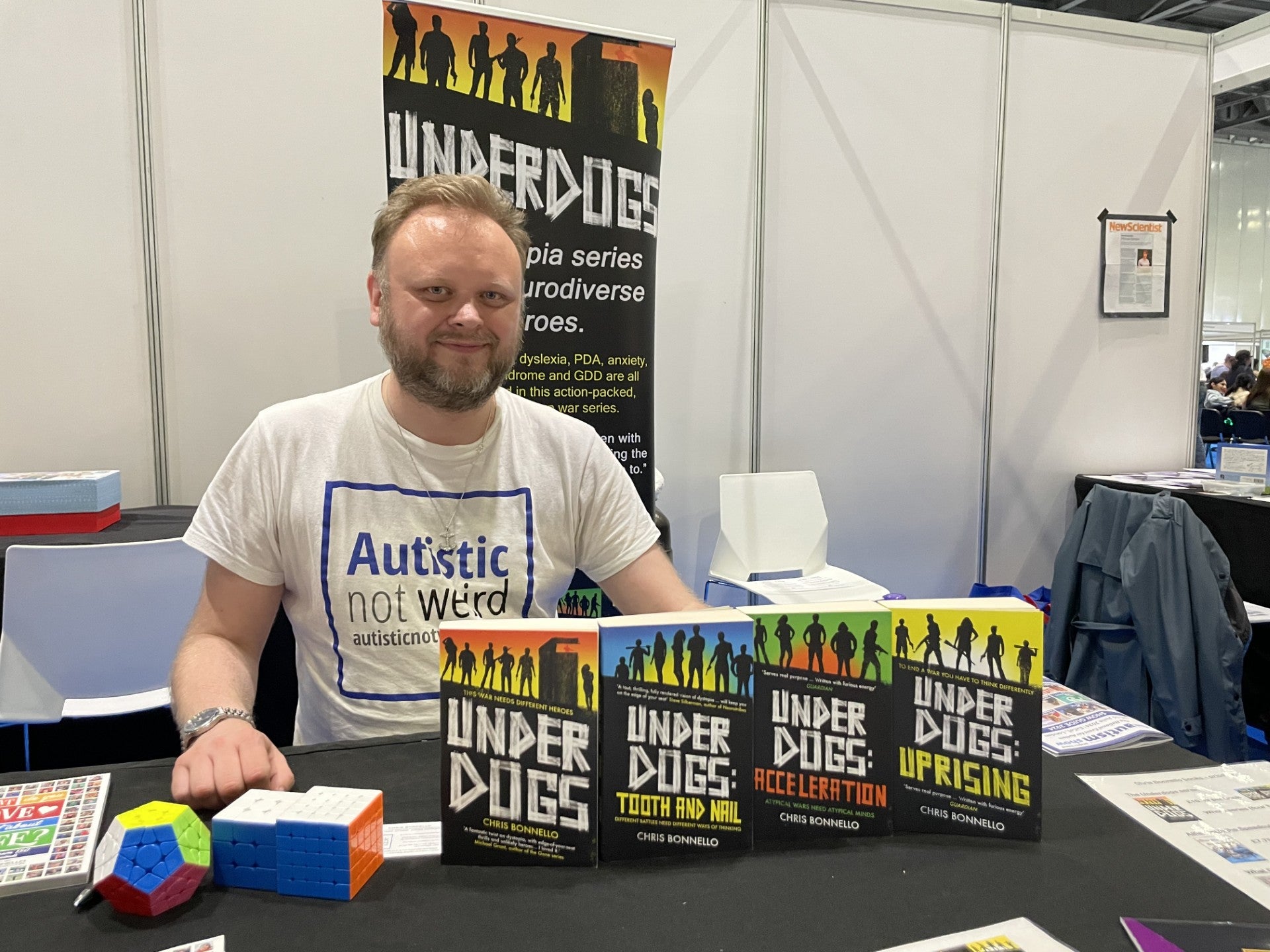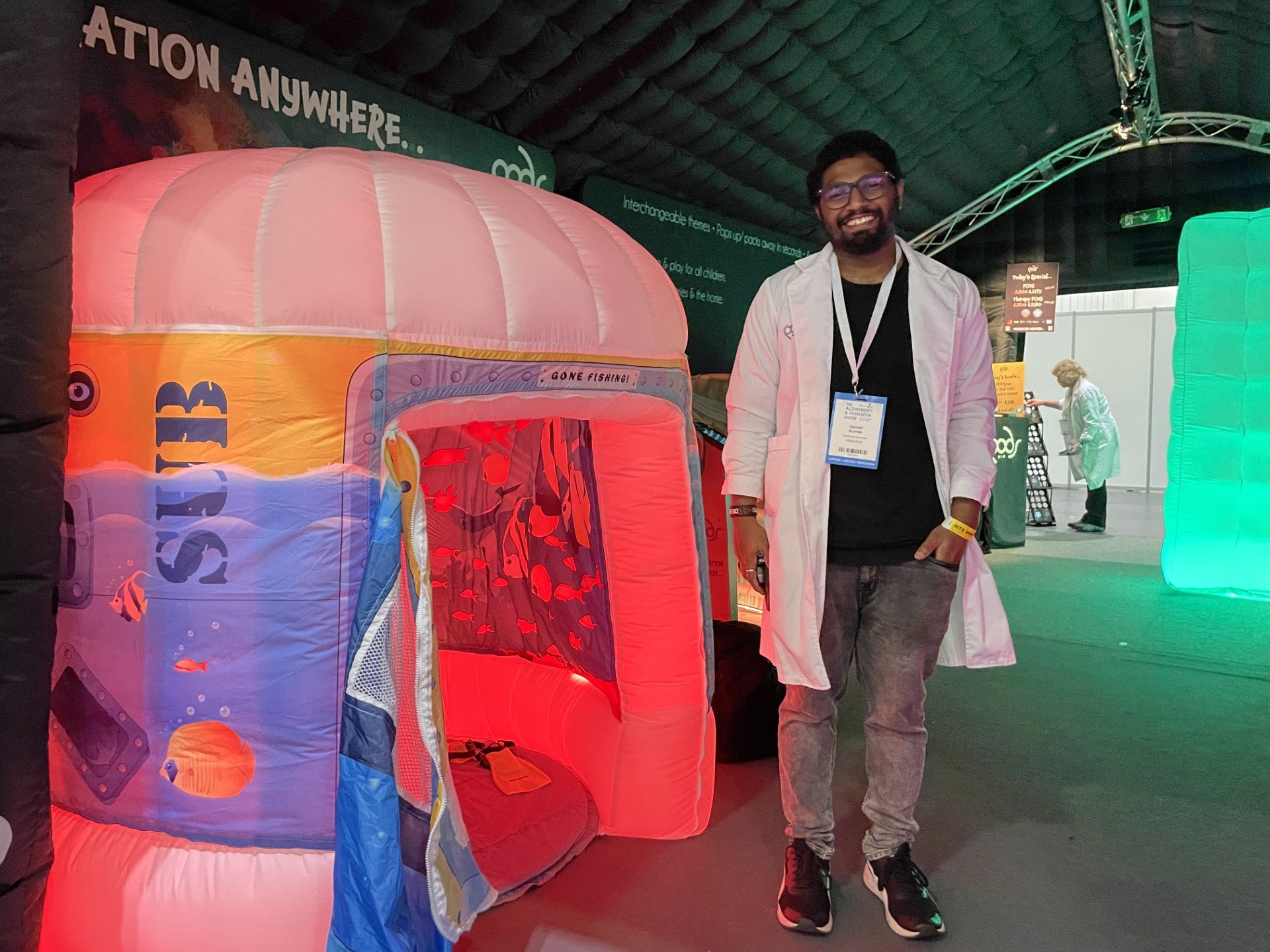I went to the Autism Show to find out why politicians won’t talk about it
None of the major parties have mentioned disability, let alone autism, on the doorstep or in election TV debates – one show is trying to change that. James Moore investigates


“I realised everything I was doing was wrong.”
So says Laura Kerbey, an educationalist and author specialising in pathological demand avoidance (PDA), a condition that often goes hand in hand with autism.
People are different. They don’t fit into the boxes depicted on the screen at the front of a lecture hall. Kerbey, speaking at the Autism Show at London’s ExCel, had the requisite qualifications to help these children but realised she was going to have to change her approach upon encountering them. If only Britain’s sclerotic state had the same revelation.
There is a palpable sense of frustration among the people I speak to about what is going on in the election. The two main parties contesting it have had nothing to say about the challenges faced by Britain’s autistic community, or indeed about those faced by those with any kind of disability.

Yet on display here, you will find some impressive and innovative solutions to the problems and challenges faced by a community that a failing state has all but washed its hands of. Local authorities, the sainted NHS – and, sadly, schools too – frequently spend more time (and, crucially, money) fighting bureaucracy than they do in actually offering the support they are supposed to provide.
“I remember during my darker days I was defining myself by my weaknesses, by what I’m bad at. I still have them. But I turned it around so that now I define myself by my strengths,” says Chris Bonnello, an autism advocate, speaker and the author of Under Dogs, a series of dystopian novels focusing on a group of neurodiverse rebels who fight for an imprisoned humanity.
The books, which Bonnello was inspired to write because he was fed up about the shameful lack of representation of his community in any type of fiction, were crowdfunded. They have since led to a children’s book published by Harper Collins.
Bonnello, who wears a T-shirt bearing the logo “autistic not weird”, is an example of the potential within this community. But it is too often wasted through the lack of support available to those who might take a similar path.
“Our local Labour candidate is in favour of getting things right,” he says of the election. “But in terms of national discussions, we’re just an afterthought.”
“It’s not right. It should be at the top of the agenda. Everyone knows someone, either a family member or a friend with a disability,” says Laura Henry-Allain, who I catch up with after her presentation.
Henry-Allain, a producer and educationalist, confesses to getting emotional during her talk on how to champion autistic children. She had to battle hard for her son, who was diagnosed late and had been tagged as the “badly behaved Black boy” at school – an appalling trope that remains pervasive.
She tells me she used to quietly give him “rest days” because he simply couldn’t cope with a full week at school. “I can’t remember the excuse I would give at the time. But I would probably be fined for it now,” she tells me. And she’s right about that. I can’t help thinking that those manning the Ofsted stand could have done with spending some time with her.
“What I say when I go into schools is that this is really important. School can be too much. It’s not for every child,” she adds.
Henry-Allain is an engaging speaker and a passionate advocate. She might have got emotional during her session but she is upbeat when we sit down afterwards. This is true of most of those I encounter. People who could easily succumb to despair are refusing to do so.
“We’re extremely busy. It’s not a situation we would like to be in but lots of parents need help and local authorities aren’t giving them the support they need. I’ve worked in this area for 10 years and every year it gets busier,” Hayley Mason-Seager, the senior solicitor and CEO of SENLegal, a law firm specialising in the area, tells me.

People turn to her when, as all too often happens, they are failed by the system. While her website is an invaluable free resource, legal representation inevitably costs money. So do experts and reports. People, she says, frequently remortgage their homes to pay for the help they need.
The stats speak for themselves: the government’s annual special educational needs and disability (SEND) statistics show that 98 per cent of parents win on appeal once they get to tribunal – meaning that just 2 per cent of refusals by councils to provide SEND support were upheld in tribunal decisions last year. At the same time, the number of SEND tribunals has gone up by a record 24 per cent.
Like Henry-Allain, Mason-Seager sees many harmful tropes used to belittle and demean those in this world, not least that of the “pushy middle-class parent” assumption in vogue amongst local authorities. “These are just parents fighting for their rights in law. They come from all backgrounds,” she says.
As well as autistic people – founder and show director Geoff Soppet, who has been running the event since 2011, tells me there are more than 60 of them among the speakers – the event at the ExCel centre in London caters for carers, allies and professionals. Exhibitors include educational institutions, companies selling gadgets, sensory toys and other equipment, and third sector organisations, large and small.
Some are autism-led, such as Autism Inclusive Meets, where I meet up with Emma Dalmayne, an autistic mother of six neurodivergent kids and a formidable personality, writer and campaigner. Her petition against child and adolescent mental health services (CAMHS) racked up more than 216,000 signatures. It calls on the organisations to stop denying support to autistic children.
When I was diagnosed with type 1 diabetes at the age of two, I was at first visiting the hospital weekly. Regular tests and check-ups followed. The NHS is not doing a stand-up job with my condition. But if you stamp your feet, you’ll probably get seen. When we had a child diagnosed with autism, however, we found ourselves left to our own devices, shoved out of the door with no idea of where to go. Since then, my wife and I have found ourselves engaged in what feels like a guerrilla war against petty bureaucrats.
“It’s like we don’t exist,” says Dalmayne, nodding her head in agreement with my story. “I find it exclusionary, frustrating, discriminatory and ableist.”
Dalmayne has also campaigned against some of the more destructive forms of therapy that autistic children are sometimes forced into, particularly those emanating out of the US. She tells me she knows of some parents who have resorted to bleach as a “cure”.
While the event is a demonstration of what is possible, a showcase of solutions and of peer support, the world of autism can get very dark. I can attest to that.
But there is light, here. I rather feel I would enjoy watching Dalmayne sparring with any politician showing their face at her doorstep. They’ll get quite the earful.






Join our commenting forum
Join thought-provoking conversations, follow other Independent readers and see their replies
Comments